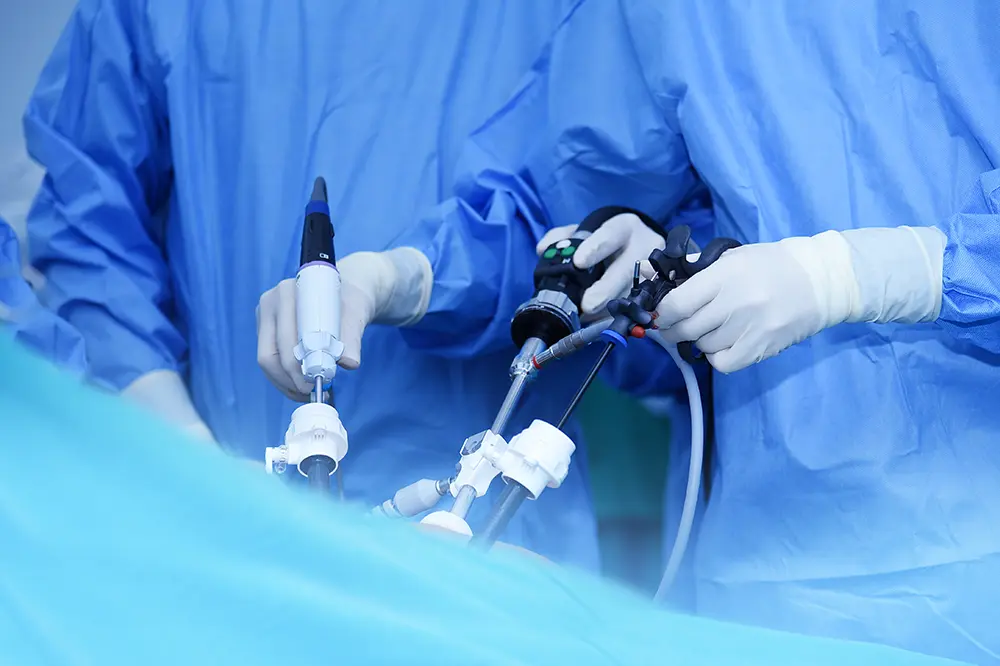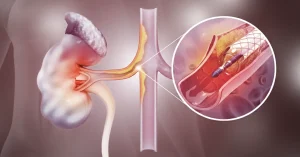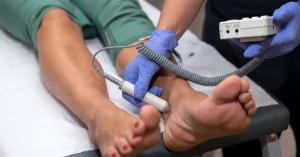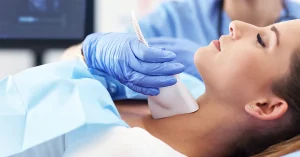What Does Laparoscopic Surgery Involve?
Laparoscopic surgery, also known as minimally invasive surgery, is a specialized and advanced technique compared to traditional surgical procedures.
In traditional open surgery, the surgeon makes a single incision of a few centimeters to access the area to be operated on. In laparoscopic surgery, several small incisions of 0.5-1 cm, called ports, are made. Specialized tubular instruments known as trocars and a camera called a laparoscope are inserted through these ports.
Why Do We Use Laparoscopy?
Laparoscopic surgery was initially used mainly in gynecological procedures and for gallbladder problems. In the last decade, it has been increasingly applied in intestinal surgery due to its many advantages and lower risk of complications.
Most abdominal or pelvic issues can now be treated laparoscopically. Common procedures include:
- Removal of cysts, polyps, or abscesses
- Biopsies or exploratory surgery for diagnostic purposes
- Removal of blood clots
- Repairing tissue tears
- Gynecological procedures for ovarian or fallopian tube disorders
- Cholecystectomy or appendectomy
- Tumor resection
Laparoscopic Surgery Is Becoming Increasingly Common Due To Its Advantages
The benefits of laparoscopic surgery include:
- Less pain than traditional surgery
- Faster recovery
- Shorter hospital stay
- Minimal or no scars
Reduced trauma to the abdominal wall
How Do You Prepare For Laparoscopic Surgery?
Before surgery, diagnostic tests confirm the need for the procedure. These may include non-invasive procedures such as X-rays or ultrasounds, and more invasive tests like endoscopies or colonoscopies.
Preoperative testing may also include a complete blood count, blood chemistry, liver enzyme tests, and an electrocardiogram. Once tests confirm readiness, your doctor will explain the procedure, incision locations, expected recovery, and any necessary restrictions.
You must refrain from eating and drinking before the day of surgery.
Any anticoagulant or anti-inflammatory medications may need to be stopped or adjusted to reduce the risk of bleeding. Depending on the procedure, oral antibiotics may be prescribed before surgery to lower infection risk with your doctor’s approval.
Recovery After Laparoscopy
After surgery, you will be observed for several hours before discharge. Vital signs such as pulse, blood pressure, and breathing will be monitored for abnormal reactions to anesthesia. Some patients may require overnight observation. Hospital stay varies depending on health, type of anesthesia, and individual recovery.
Mild throbbing pain at incision sites is normal for a few days, and painkillers may be prescribed. Shoulder pain may occur due to carbon dioxide used to inflate the abdomen for visibility, which can irritate the diaphragm. Bloating may also occur but should subside within a few days.
Daily activities can typically resume within a week. To support recovery:
- Stay active to prevent blood clots
- Sleep more than usual
- Wear loose-fitting clothing
Other possible temporary issues include fatigue, difficulty sleeping, and pain. Contact your doctor if these persist.
Diet After Laparoscopy
Constipation may occur after gastrointestinal surgery or as a side effect of painkillers. Dietary restrictions or medications may be recommended to prevent constipation.
Maintain your normal fluid intake. On the first day, consume liquids like apple juice, ginger tea, soup, crackers, or toast. Avoid citrus juices initially. Gradually return to your regular diet over the following days.
Are There Any Risks Associated With Laparoscopy?
Although reduced, risks still exist during or after laparoscopic surgery. Common complications include bleeding, infection, or damage to abdominal organs.
Postoperative signs of infection include:
- Fever or chills
- Intensifying abdominal pain
- Redness, inflammation, or discharge at the incision site
- Nausea and vomiting
- Persistent cough
- Shortness of breath
- Inability to urinate
- Dizziness
Organ damage may occur during laparoscopic manipulation. Blood or fluids entering the abdominal cavity may require surgical repair.
Laparoscopic general surgery is a key department at VenArt Clinic. Highly experienced doctors, trained in renowned clinics in Europe, the US, and Israel, perform procedures using innovative minimally invasive techniques. Over 60% of patients can be treated on an outpatient basis.
Schedule a consultation with us and see how we can help.











